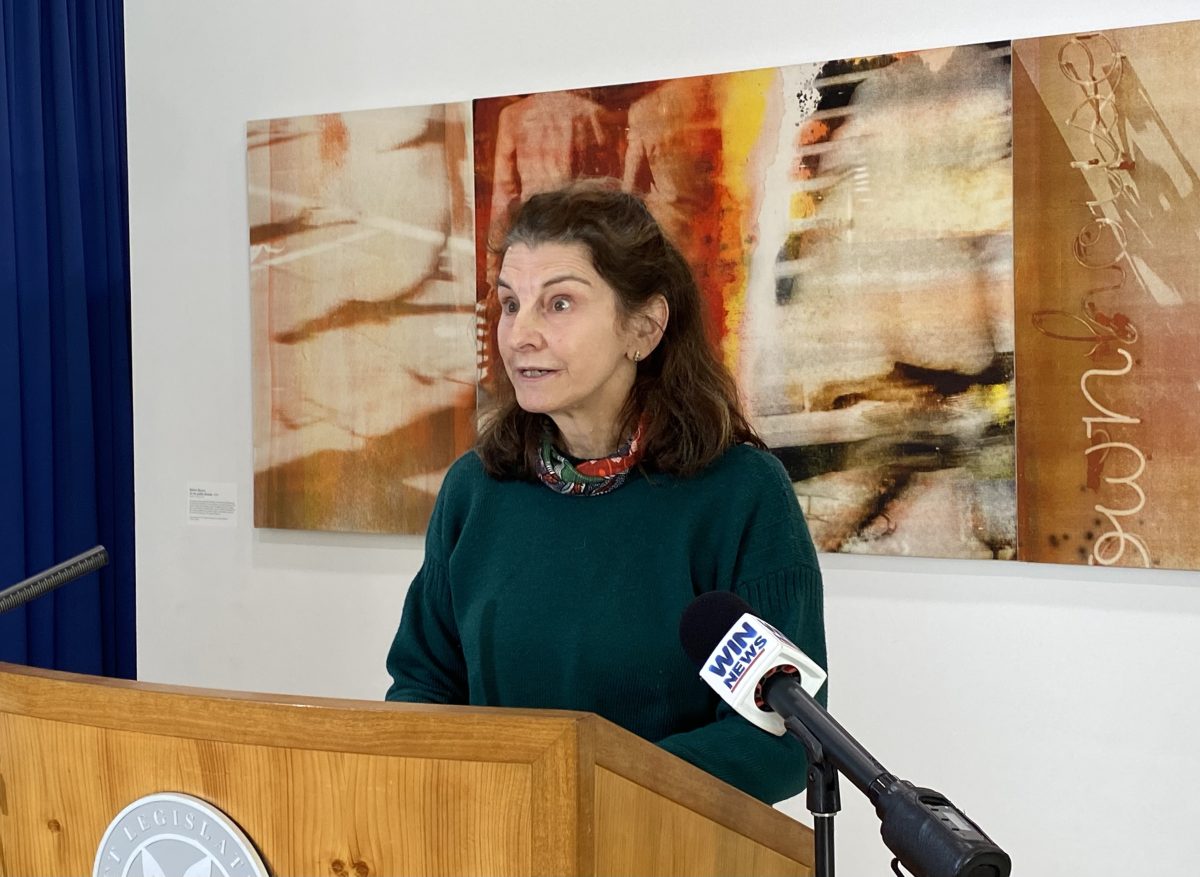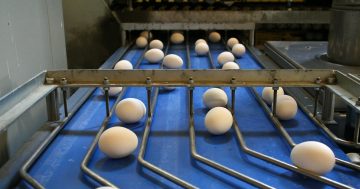
Acting Chief Veterinary Officer Dr Kyeelee Driver has commended Canberrans for their response to bird flu’s presence in the Territory thus far. Photo: Claire Fenwicke.
Canberra bird owners have been told that biosecurity measures to prevent bird flu are likely to be in place for weeks and possibly months.
No new cases of avian influenza (H7N8 strain) have been recorded in the ACT this week, meaning the local case numbers remain at one commercial infected property and one local backyard infection within the Belconnen district quarantine area.
Acting Chief Veterinary Officer Dr Kyeelee Driver said it was good news that the Territory had seen a week of negative test results for all samples of sick domestic and wild birds.
“Monitoring and sampling will continue for some time. Further positive detections may transpire and the ACT Government remains ready to respond to those should they occur,” she said.
Avian influenza is very easily transmitted by moving sick birds from property to property, as well as from contaminated boots, equipment and vehicles if proper biosecurity measures aren’t in place.
Dr Driver emphasised that good biosecurity measures were needed to ensure the virus didn’t spread.
“The best thing bird owners can do is practise good hygiene when handling their birds, keep their birds at home and limit contact between their birds and wild birds,” she said.
“If your bird is unwell, please call your veterinarian to get some advice before taking them in for a visit. Your vet will let you know the best way for your bird to be treated while reducing the risk of spreading any disease.”
The ACT Government is teaming up with NSW officials for high-visibility efforts at local events and markets to let the community know how they can reduce the risk of spreading bird flu.
Bird owners within the quarantine area have been asked to register their birds online to assist government officials with planning responses should further detections occur.
The Federal Government has invested nearly $7 million to keep Australia free of the H5 strain of bird flu.
Australia is the last continent that hasn’t been affected by this strain, which is currently sweeping through wild bird and mammal species overseas.
Agriculture Minister Murray Watt said when it came to biosecurity, “We cannot rest on our laurels”.
“The arrival of migratory birds from areas where H5 HPAI is present – particularly as spring approaches – means we face a constant risk that is outside of our control,” he said.
“We can’t stop the natural migration patterns of wild birds that may be sick, but we can prepare ourselves if that does occur.
“That is why we are investing $6.9 million in enhanced capability to detect and respond to avian influenza in wildlife.”
Commonwealth funding includes:
- $2.2 million for the Wildlife Health Australia One Health Surveillance Initiative
- $1.95 million to Animal Health Australia to support the national response capability, including investigating the potential of commercial avian influenza vaccines for use in Australia.
- $1.1 million to extend the National Avian Influenza Wild Bird Surveillance Program for another four years
- $800,000 for communication with stakeholders, industry and the general public to strengthen awareness and understanding of Australia’s biosecurity measures and preparedness.
- $580,000 to support early detection and response capability for H5 HPAI in wildlife
- $200,000 in analysis to quantify the location, structure, biosecurity, routine husbandry practices and movement patterns of Australia’s commercial poultry industries
- $70,000 for work to better understand the link between the presence of H7 low pathogenicity avian influenza in Australian wild birds and the outbreaks of H7 HPAI in Australian poultry.
More than 400 bird species are susceptible to avian influenza. The virus is mostly spread by wild birds (particularly ducks) by contaminating water and food supplies.
It can also spread by the movement of eggs, birds, people, vehicles, and equipment between farms, as well as by clothing, footwear, aerosols, water, feed, litter, biting insects and vermin.
Avian influenza is not a food safety concern. It is safe to eat properly handled and cooked poultry meat, eggs and egg products.
Find out more about the Territory’s avian influenza response, as well as requirements for those in the quarantine zones, at Environment ACT.















